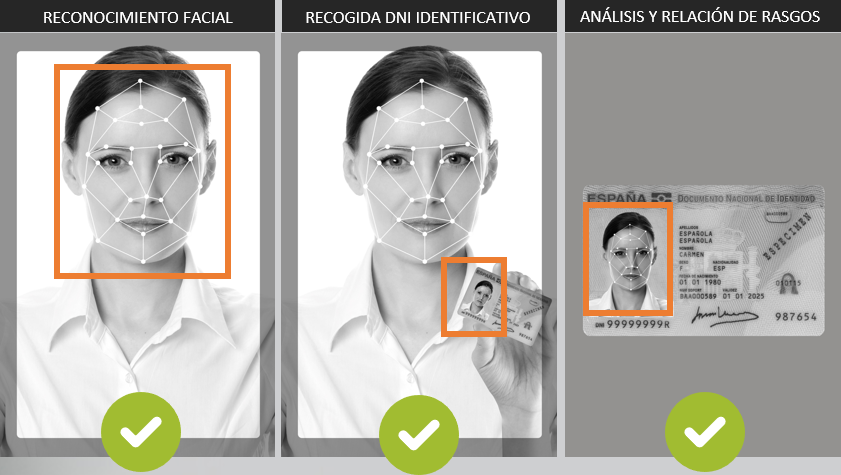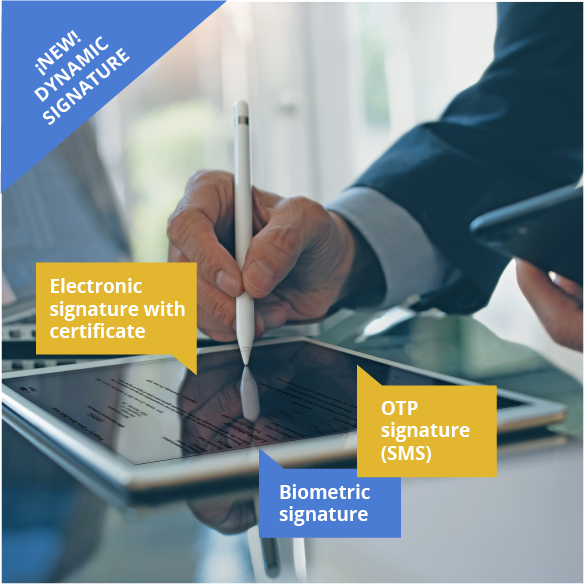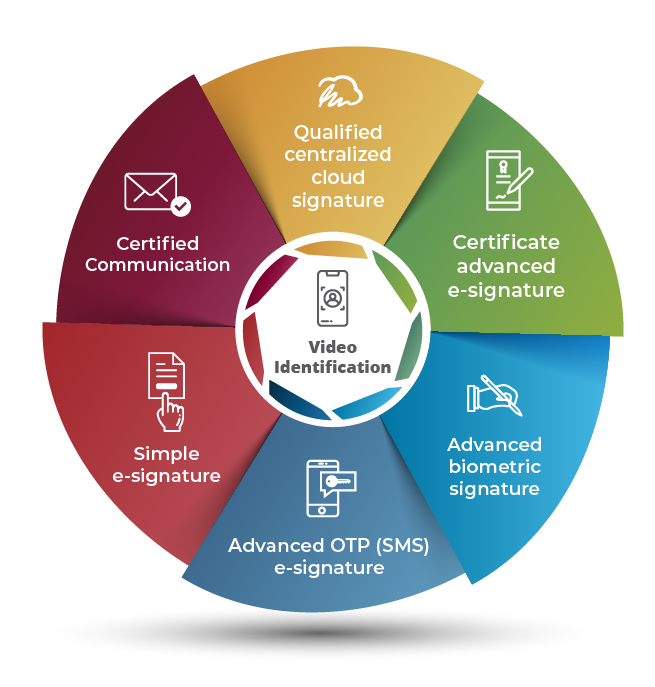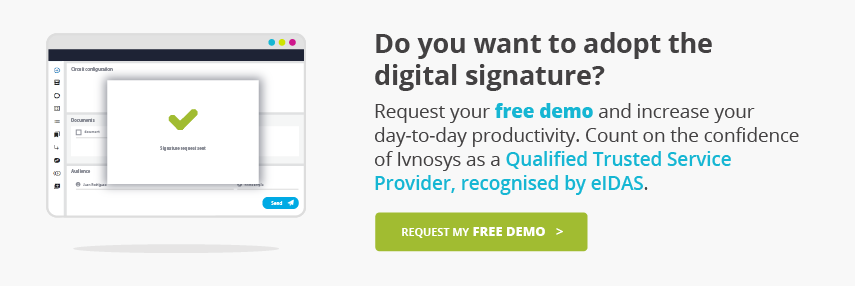
The importance NOW of the digital signature: the time to sign online
Escrito por: Marketing Team Fecha Tuesday 9, June 2020 Categoría: E-Signature
Due to the state of alarm we are in, teleworking has multiplied dramatically in the last week and with it, the digital signature.
The problem has been and is that many small, medium and large Spanish companies were not prepared for it.
The coronavirus is going to be a before and after. We must realize that many of the actions we can do daily, need a digital signature (or electronic signature).
Why is the digital signature or electronic signature so important now?
 The technology has completely impacted the transaction market. One of the key points to normalize the business situation is to continue signing documents with legal guarantees.
The technology has completely impacted the transaction market. One of the key points to normalize the business situation is to continue signing documents with legal guarantees.
Any document can be signed electronically, we no longer need to be in person to sign: contracts (insurance, work, services…), transactions, paperwork, etc. In addition, when we use the digital signature, a series of electronic data are collected that allow us to identify the signatory, ensure the integrity of the document and its non-repudiation.
Digital signature, with legal guarantees?
 This is so, in addition to collecting the signatures of the interested parties, a third party must certify the validity of these signatures. That is, a Qualified Trusted Electronic Service Provider. Governed by the eIDAS regulation, also known as Regulation (EU) No. 910/2014 of the European Parliament and Council of 23 July 2014, which establishes the guidelines for electronic identification,
This is so, in addition to collecting the signatures of the interested parties, a third party must certify the validity of these signatures. That is, a Qualified Trusted Electronic Service Provider. Governed by the eIDAS regulation, also known as Regulation (EU) No. 910/2014 of the European Parliament and Council of 23 July 2014, which establishes the guidelines for electronic identification,
a common framework for trusted services, giving them the same legality as traditional paper-based signature processes.
A digital signature tool for everything, but what?
There are digital signature platforms that allow you to sign documents, send documents requesting your signature, and even receive them. In addition, electronic evidence is provided such as who has downloaded the document, if they have signed it, at what time, with what type of signature… but productivity lies in having everything in one tool. One that allows to work in the distance and to make in remote of form phase, adapting the costs and the services, tasks like:
- Sign documents ellectronically with certified shipments: yours, your company’s, representative’s…
- Receive signed documents, which means speeding up processes.
- Create circuits with multiple possibilities and see the details, for example: that several people or departments can sign a document, that they receive a signed document just by signing it once…
- Control in real time the state of those circuits.
- Choose the best type of signature according to your needs. (Below you will see the types of signature)
 Collect evidence to support the legal validity of the signed document: when the document was downloaded, signed, etc.
Collect evidence to support the legal validity of the signed document: when the document was downloaded, signed, etc.- Control pending tasks, if you have documents to sign or to be signed
- Offer mobility, signing your documents from anywhere and on any device.
- Signing with Outlook. Thanks to this integration, it will be easier for you to send your signed documents.
- Video identification: system to electronically identify people remotely via videoconference.
What is the dynamic signature?

The dynamic signature makes it possible to offer recipients different types of signature, from which they choose which to use. To find out which types of signature to offer you, look at:
- The legal robustness we need from the signatures collected.
- The technology available by the recipients.
By giving them this facility, you will collect their signatures in just a few minutes. By working remotely, it is a plus to offer flexibility and speed up the signing process.
But how many types of signature are there and which one is the right one?
Depending on the technology available and the legal force required, there are various types of signature:

There is a flexible pay-per-use contracting model, which can be adapted in order to respond to the required demands. You can choose which types of signature to get on your platform:
- Centralized signature with qualified in the cloud: Signature with digital certificate in the cloud. Higher legal range, guaranteeing maximum security of signed documents.
- Advanced electronic signature with certificate: A signature method with a higher legal status using a digital certificate, ensuring the identity of the signatory and the integrity of the message.
- Advanced biometric signature: Digitized handwritten signature with biometric data collection (contact position, speed and pen pressure) in a specialized device. It provides certification of the content of the messages and the signature.
- Advanced OTP signature (SMS): Explicit acceptance of a communication and/or document with signature using a one-time PIN (OTP) sent by SMS to the mobile. Provides certified evidence of message content and acceptance.
- Simple signature: Explicit acceptance of a communication with one or more conditions through an acceptance dialog box. Suitable for signing conditions of use and documents or approving them.
- Certified communication: Certified delivery of a message by email or SMS. In addition, you will have the option of being able to download the document.
SUPPORTING THE PAPERLESS CULTURE: PAPERLESS OFFICE
 To all this, we add that Ivnosys solutions allow the administration of all corporate documentation in an agile, simple and intuitive way, thanks to the commitment to a “paperless” culture, or paperless office.
To all this, we add that Ivnosys solutions allow the administration of all corporate documentation in an agile, simple and intuitive way, thanks to the commitment to a “paperless” culture, or paperless office.
Providing better automation, unification and easy access to information, cost and resource reduction, 100% guaranteed security and reliability and increased productivity.
The paperless culture is no longer an option, but has become the norm both in companies and in public bodies, where more and more processes and procedures are carried out telematically.
In conclusion, now more than ever is the time when circumstances force us to have this type of digital tools in order to continue managing and carrying out procedures from a distance, as with the digital signature. Let’s not allow it because we can’t leave home, but because we support the digitalization of processes, because of the change of mentality regarding the digital transformation, with all the benefits that this brings.
DO YOU WANT TO KNOW HOW TO COMMUNICATE WITH PUBLIC BODIES TODAY?
The new official measures for managing notifications.





